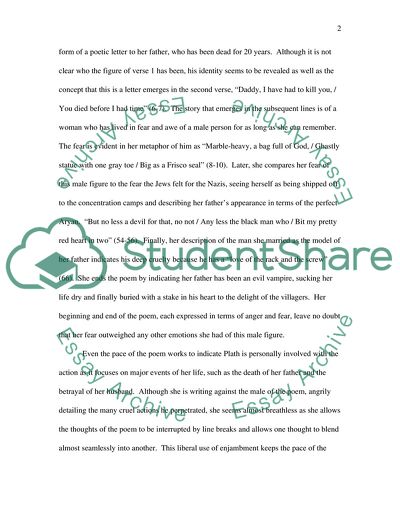Cite this document
(“Daddy by Sylvia Plath Essay Example | Topics and Well Written Essays - 2000 words”, n.d.)
Retrieved from https://studentshare.org/literature/1540404-daddy-by-sylvia-plath
Retrieved from https://studentshare.org/literature/1540404-daddy-by-sylvia-plath
(Daddy by Sylvia Plath Essay Example | Topics and Well Written Essays - 2000 Words)
https://studentshare.org/literature/1540404-daddy-by-sylvia-plath.
https://studentshare.org/literature/1540404-daddy-by-sylvia-plath.
“Daddy by Sylvia Plath Essay Example | Topics and Well Written Essays - 2000 Words”, n.d. https://studentshare.org/literature/1540404-daddy-by-sylvia-plath.


